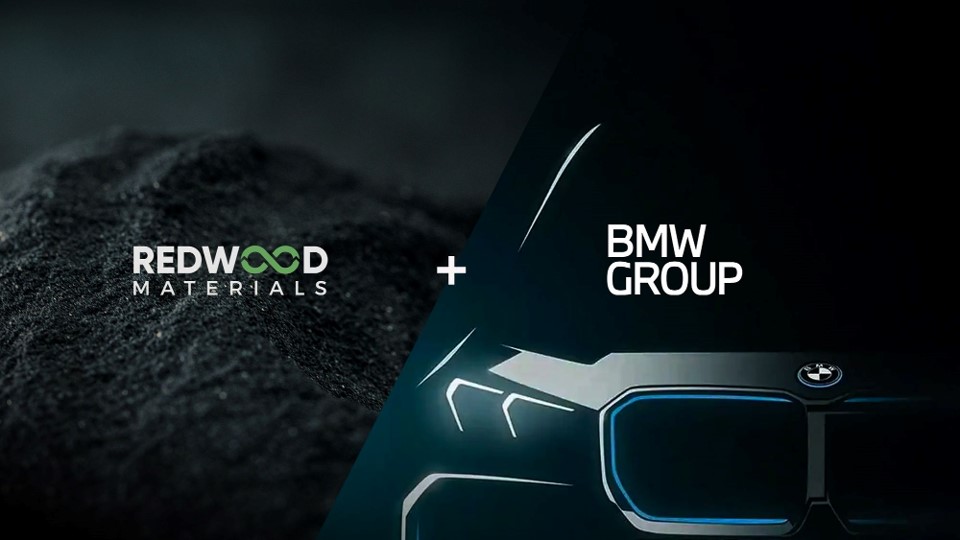BMW and Redwood Materials announced on September 19th, 2024 their partnership for the recycling of retired batteries from electric vehicles (EVs), plug-in hybrid electric vehicles (PHEVs), and mild hybrid vehicles (HEVs) in North America, covering BMW, Rolls-Royce, and Mini brands, as well as BMW Motorrad motorcycles in the U.S.
Under this agreement, Redwood will collaborate directly with over 700 BMW locations across North America, including dealerships, distribution centers, and other facilities, to recover end-of-life batteries. BMW claims that 95% to 98% of critical minerals such as lithium, cobalt, nickel, and copper will be recycled and repurposed, committing to establishing a closed-loop value chain for lithium-ion batteries in the United States.
According to the joint announcement, Redwood's recycling process is significantly more environmentally friendly than traditional mining and refining methods, reducing energy usage by 80%, CO2 emissions by 70%, and water usage by 80%.
Founded in 2017 by Tesla's former Chief Technology Officer, JB Straubel, Redwood operates two battery recycling facilities in the United States. A facility under construction in Charleston, South Carolina, is in close proximity to BMW's vehicle assembly plant in Spartanburg, which is the largest single BMW plant globally, with an annual capacity of up to 450,000 vehicles. Additionally, BMW is constructing a battery plant in Woodruff, South Carolina. AESC, the battery supplier for BMW, also operates a battery plant in Florence, South Carolina. South Carolina is one of the key automotive manufacturing hubs in the United States, home to over 500 companies related to automobile manufacturing, including BMW.
Redwood also operates another battery recycling facility near Reno, Nevada. In 2023, the company received a $2 billion loan from the U.S. Department of Energy. Besides BMW, Redwood's clientele includes Ford, Toyota, Audi and Volkswagen from the Volkswagen Group, Ultium Cells LLC (a joint venture between General Motors and LG), Tesla, and Panasonic Energy, aiming to scale up the production of battery materials from both recycling plants to support the manufacturing of batteries with an annual capacity of 100 GWh.
Since the launch of the BMW i3 in 2013, BMW has been committed to the transition to electrification for over a decade. BMW's long-term goal is to manufacture at least six pure electric (BEVs) models in the U.S. by 2030. The short-term objective is to ramp up the production of electric vehicles on the next-generation Neue Klasse vehicle platform at plants outside the United States. The first electric SUV model on the Neue Klasse platform is set to begin production in Hungary in 2025, with deliveries starting in 2026. From 2027, this SUV will also be manufactured in Mexico.






